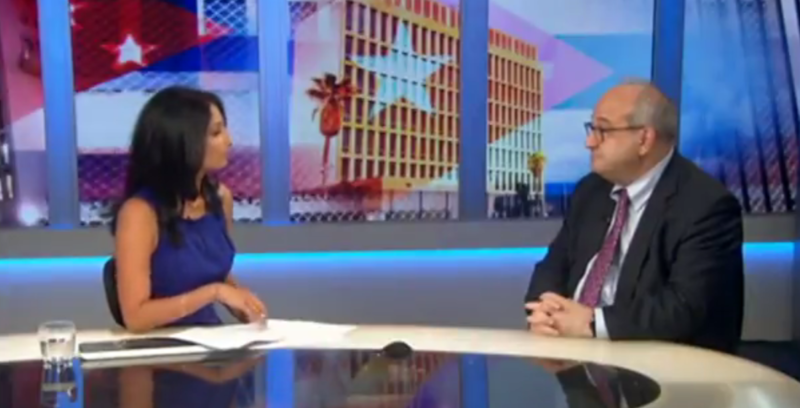Europe Might Take Another Step Back
If Spain fails to have the Common Position lifted or if it succeeds and Havana again turns down European economic cooperation, then Cuba wins once more.
A recent series of attacks on American personnel in Cuba has left officials in both countries confused. As investigations into the origins of the mysterious symptoms that have affected 21 members of the U.S. intelligence and diplomatic corps continue, there have already been implications for relations between the two countries. Last week, Secretary of State Rex Tillerson announced that about half of the embassy’s staff would be recalled. In an interview with BBC, Michael Shifter discussed the attacks and the effect they may have on U.S.-Cuba relations moving forward.
"What is hard to reconcile is whether the Cubans knew if there was somebody else involved. They are very good at this kind of intelligence and monitoring, so if another party, a third party, was responsible, there is a likelihood they would know about it."
"[The reduction of personnel] is a setback in the relationship -- the Cubans did not want this to happen. This sends a strong message, and more than anything, this is a psychological blow with possible economic implications and costs for a country that is already in dire straits."
"[Trump's policies] were a partial reversal of what Obama had done. There were some measures that changed, but they didn't go to the extreme that many Cubans feared, so they felt they could live with them."
"Until the situation is clarified, we are going to be in this limbo, in this very difficult situation."
"The Cubans are in a difficult situation. They want good relations with the United States. The economy is in terrible shape, and the Cubans are looking to get back on solid footing. They need the investment, they need the business, they need the tourism from the United States, and so anything that cuts into that is going to be a problem for them."
If Spain fails to have the Common Position lifted or if it succeeds and Havana again turns down European economic cooperation, then Cuba wins once more.
The Summit of the Americas was marked by discord between the US and Latin American countries. What did it accomplish, if anything?
On April 25, the Inter-American Dialogue hosted a conversation on the Cuba’s evolving political and economic situation and how the Catholic Church views its role in the country.
 BBC World News / Youtube
BBC World News / Youtube